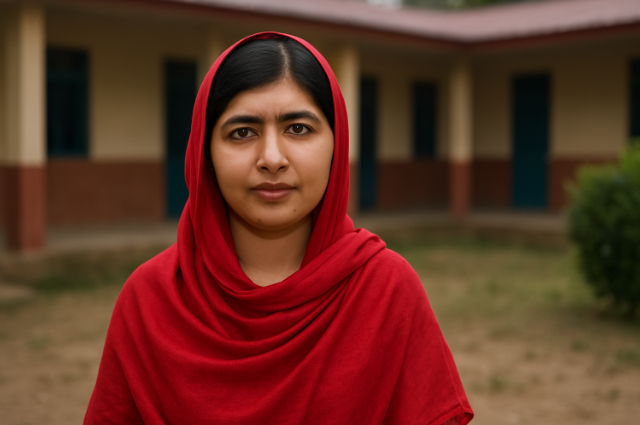
Malala grow to be born in the Swat Valley of Pakistan, an area that, for a time, fell under the oppressive rule of the Taliban. Her father, Ziauddin Yousafzai, became an instructor and a fierce recommend for girls' education, establishing a school for women in their village. From a very young age, Malala cherished college and absorbed the belief that education became her essential right and a key to her future. The profound disruption started at the same time as the Taliban took manipulate of the vicinity.
Among their extreme regulations banning song and television become a decree was issued that women may want to no longer attend faculty. This act changed into a planned attempt to stifle the potential and employment of a whole generation of women. For Malala, then just 11 years old, this became an unacceptable robbery of her destiny. In January 2009, she had to say goodbye to her classmates, unsure if they might ever move back to their desks.
Opposition to the suppression of women's rights.
As she grew greater vocal and started out spearmen publicly, her activism made her a distinguished and perilous figure. She turned into not just talking about her own education; she became challenging the patriarchal shape that sought to preserve women uneducated, structured, and invisible. Her bravery made her a beacon of desire for plenty, but also marked her for violence through the very forces she became hard.
In October 2012, the inevitable befell. A masked Taliban gunman boarded her faculty bus, requested, and shot her in the head. This brutal act of violence was intended to silence her and send a chilling message to any girl who dared to search for training.
Malala survived and was flown to a hospital in Birmingham, England, for remedy. What the extremists supposed as a final, silencing blow, the world interpreted as a rallying cry. Her story became an international symbol of the fight against injustice and the human value of denying schooling.
On her 16th birthday in 2013, she stood earlier than the United Nations, asserting, "One infant, one instructor, one e-book, and one pen can change the world." The UN identified July 12th as Malala Day, turning her non-public war into a global commitment to education.
Systemic Change Through the Malala Fund: With her father, she set up the Malala Fund, an agency dedicated to ensuring each lady has the opportunity to complete 12 years of safe, first-class training. The fund works in diverse regions facing giant limitations to women's education, from Afghanistan and Nigeria to Pakistan and Lebanon. This effort actions beyond person advocacy to create systemic alternatives, funding neighborhood educators and applications.
Malala’s tale has shifted worldwide and local perspectives. She exemplifies the "multiplier impact" of girls' schooling: whilst a woman is knowledgeable, she is more likely to marry later, have fewer and healthier children, earn better profits, and reinvest those earnings into her family and network.
Her activism has spurred governments and international bodies to prioritize girls' schooling, information it as an essential tool for poverty reduction, fitness development, and reaching non-violent, democratic societies.
Malala Yousafzai, who went on to study at the University of Oxford and win the Nobel Peace Prize, is a dwelling testament that an attack on a lady for seeking understanding is, in reality, an assault on the entire destiny progress of a society. Her voice, as soon as targeted for removal, now speaks for the millions of silenced girls, traumatic that the promise of schooling and, for this reason, the promise of a higher global be fulfilled for all.
Malala changed into born inside the beautiful, but politically volatile, Swat Valley of Pakistan. Her youth was deeply influenced by her father, Ziauddin Yousafzai, who became a teacher and a devoted advise for girls' education. He ran a school for women in their village, instilling in Malala from a very young age the foundational belief that education became her fundamental proper and the important thing to her future.
Malala changed into born inside the lovely, yet politically volatile, Swat Valley of Pakistan. Her formative years became deeply motivated with the aid of her father, Ziauddin Yousafzai, who became each a trainer and a dedicated advisor for girls' training. The stability of her younger existence turned into catastrophically shattered when the location fell under the oppressive rule of the Taliban. This extremist group imposed extreme regulations on civil life, concentrated on media and tradition; however, their maximum devastating decree was the banning of girls from attending school. This became a planned, calculated try to stifle the potential, independence, and enterprise of an entire generation of girls.
. . .
Reference:
